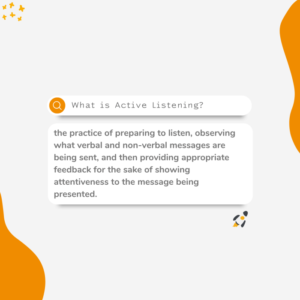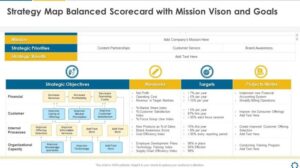
Tax tips for self-employed individuals are crucial for navigating the complexities of managing finances without a traditional employer. As a self-employed professional, understanding your tax obligations can help you save money and avoid pitfalls that many overlook. From deductions to managing tax payments effectively, this guide provides essential insights to streamline your tax season.
Being self-employed comes with unique challenges, particularly regarding taxes. With the right knowledge, you can take advantage of various deductions, credits, and strategies to optimize your financial situation. Whether you’re just starting or have been in business for years, these tips will empower you to manage your taxes confidently and efficiently.
Understanding Tax Obligations for Self-Employed Individuals
Self-employed individuals have unique tax obligations that differ from those of traditional employees. Understanding these obligations is crucial for effective financial management and compliance with tax laws.
Types of Taxes for Self-Employed Individuals
Self-employed individuals are primarily responsible for paying two types of taxes: income tax and self-employment tax. Income tax is based on the net income earned, while self-employment tax covers Social Security and Medicare contributions.
Quarterly Tax Payments
To avoid penalties, self-employed individuals must estimate and pay taxes quarterly. Estimating these payments typically involves projecting annual income and calculating expected tax liability.
Importance of Accurate Record Keeping
Keeping accurate records is essential for self-employed individuals. Detailed records of income and expenses not only simplify the tax filing process but also support claims for deductions and credits, thus reducing overall tax liability.
Deductions Available for Self-Employed Individuals
Deductions can significantly reduce taxable income for self-employed individuals. Identifying which expenses qualify for deductions is key to maximizing tax savings.
Common Business Expenses for Deductions
Self-employed individuals can deduct various business-related expenses. Common deductions include:
- Home office expenses
- Supplies and equipment
- Travel and vehicle expenses
- Marketing and advertising costs
- Professional fees (e.g., legal, accounting)
Documenting Expenses
Proper documentation of expenses is critical. Receipts and records should be diligently collected and organized, as this substantiates claims during audits and ensures compliance with tax regulations.
Benefits of Incorporation for Tax Purposes
Incorporation offers potential tax advantages over remaining a sole proprietor. Understanding these benefits can help self-employed individuals make informed business decisions.
Tax Benefits of Incorporation

Incorporating a business can lead to various tax benefits, such as:
- Reduced self-employment taxes
- Access to additional deductions
- Potential for lower tax rates on retained earnings
Impact of Business Structure on Tax Liabilities
Different business structures, such as LLCs and S-Corps, affect tax liabilities. LLCs can provide flexibility in taxation, while S-Corps may offer savings on self-employment taxes.
Tax Credits Available for Self-Employed Individuals
Tax credits can further reduce the tax burden for self-employed individuals. Knowing which credits are available is vital for financial planning.
Specific Tax Credits
Several tax credits are available, including:
- Earned Income Tax Credit
- Health Coverage Tax Credit
- Credit for Small Employer Health Insurance Premiums
Eligibility Requirements
Each tax credit has specific eligibility criteria. For instance, the Earned Income Tax Credit typically requires a certain level of income and filing status.
Strategies for Managing Tax Payments
Effective tax management involves strategies for budgeting and planning throughout the year.
Budgeting for Tax Payments
Self-employed individuals should allocate a portion of their income for taxes. A general rule of thumb is to set aside 25-30% of earnings for tax liabilities.
Timeline for Tax Payments
Creating a timeline for quarterly payments and annual returns is essential. Payments are typically due in April, June, September, and January of the following year.
The Importance of Professional Help
Hiring a tax professional can provide significant advantages for self-employed individuals.
When to Hire a Tax Professional
Self-employed individuals should consider hiring a tax professional when their tax situation becomes complex or if they are unsure about deductions and credits.
Services Offered by Tax Professionals
Tax professionals provide a range of services, including tax preparation, planning, and representation during audits, ensuring compliance and maximizing savings.
Tax Planning Considerations for Business Innovation
Innovative business practices can influence tax situations for self-employed individuals.
Impact of R&D Tax Credits
Research and Development (R&D) tax credits can benefit self-employed innovators by offsetting costs associated with developing new products or services.
Examples of Innovative Business Models
Innovative models might include subscription services or online platforms, each with unique tax implications that can affect overall profitability.
International Business Tax Considerations
Engaging in international business activities complicates tax obligations for self-employed individuals.
Implications of Multi-Country Clients
Having clients in multiple countries can lead to complex tax filings and liabilities. Understanding international tax treaties and regulations is crucial.
Resources for International Tax Laws
Self-employed individuals should utilize resources such as the IRS website and international tax guides to navigate these complexities effectively.
Effective Workplace Communication for Tax Issues

Clear communication about tax-related services is vital for maintaining good client relationships.
Strategies for Client Communication
Maintaining transparency about financial reporting and tax obligations fosters trust and clarifies expectations.
Risk Management in Tax Compliance
Non-compliance with tax reporting can pose significant risks for self-employed professionals.
Implementing a Risk Management Plan
Creating a risk management plan can help mitigate tax-related issues, ensuring compliance and reducing the likelihood of audits.
Enhancing Business Productivity Through Tax Efficiency
Streamlining tax processes can lead to improved business efficiency.
Tax Organization for Better Productivity
Organizing tax-related processes can free up time and resources, allowing self-employed individuals to focus on core business activities.
Networking for Tax and Financial Resources
Building a network of financial and tax advisors is beneficial for self-employed individuals.
Key Professionals to Connect With
Key professionals include accountants, financial planners, and tax attorneys who can offer valuable insights and advice.
Marketing Directly for Self-Employed Tax Services
Effectively marketing tax services can attract self-employed clients.
Creating Promotional Materials
Promotional materials should highlight the benefits of tax services, focusing on potential savings and compliance assurance.
Sales Training for Tax Professionals
Developing essential sales skills is crucial for tax professionals working with self-employed clients.
Training Program for Tax Service Sales
A structured training program can enhance sales techniques and boost client acquisition by addressing common objections effectively.
Final Summary
In summary, mastering tax tips for self-employed individuals isn’t just about compliance; it’s about leveraging your unique business situation to your advantage. By staying informed and organized, you can navigate tax obligations more smoothly, ultimately leading to greater financial success. Remember, investing time in understanding tax strategies can save you money and peace of mind in the long run.
Query Resolution
What is the self-employment tax rate?
The self-employment tax rate is currently 15.3%, which consists of 12.4% for Social Security and 2.9% for Medicare.
How can I estimate my quarterly tax payments?
You can estimate your quarterly tax payments based on your expected annual income. A common method is to take your estimated annual income, multiply it by the self-employment tax rate, and divide by four.
What records should I keep for tax deductions?
It’s essential to keep detailed records of all business-related expenses, including receipts, invoices, and bank statements, to substantiate your deductions.
How can I benefit from hiring a tax professional?
A tax professional can help you navigate complex tax laws, maximize deductions, and ensure compliance, ultimately saving you time and potentially reducing your tax liability.
Are there any tax credits specifically for self-employed individuals?
Yes, self-employed individuals may qualify for tax credits such as the Qualified Business Income deduction and certain education credits, depending on eligibility criteria.




